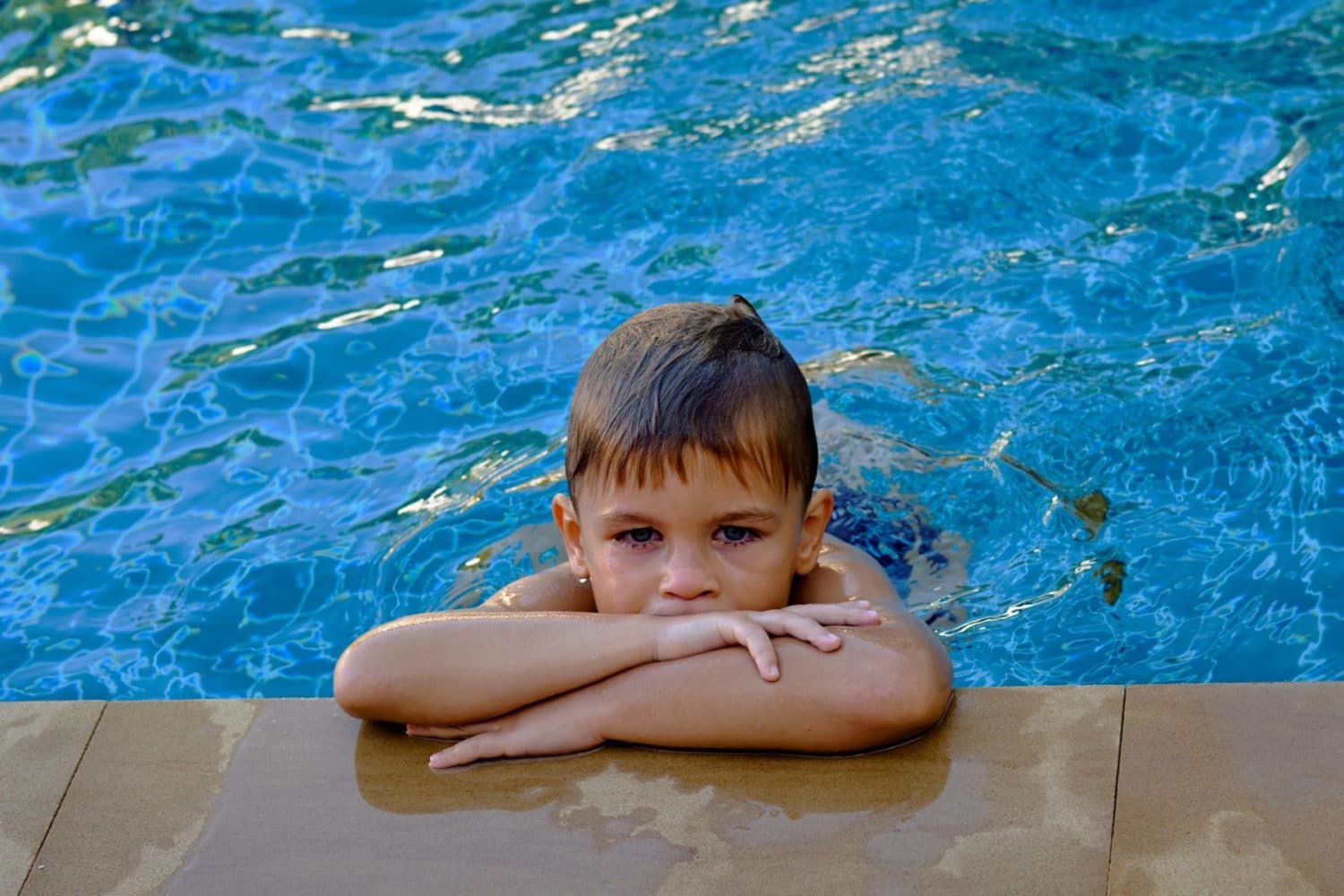Summer fun usually includes more time spent in the water, whether in a pool or at the beach. Don’t let irritating eyes ruin your day in the sun. There are ways to protect your eyes when swimming.
Table of Contents
Protect Your Eye Health When Swimming
When it comes to pools and the chlorine to keep them clean, our eyes can take a hit. There’s a thin layer of tears that coats our eyes called a tear film. This tear film keeps our eyes hydrated, smooth, and clear. Chlorine and some of the other chemicals in pools can wash away that moist layer, leaving our eyes itchy and red. If you’re a frequent swimmer, you may develop dry eye where you don’t produce enough tears or the right quality of tears – making your eyes feel gritty and maybe even giving you blurry vision.
Book an appointmentIs Opening Your Eyes in A Pool Bad?
Pool, hot tub, ocean, and lake water are bad business for your eyes. Bacteria can grow on contact lenses, even after just one swim, and cause a corneal infection. Because contacts sit in the eye for extended periods of time, exposure to chemicals, bacteria, parasites, or fungi can cause a pretty severe problem, even vision loss. Instead, go without your contacts and ask Michigan Eye Institute about prescription goggles.
How to Get Chlorine Out of Eyes
After swimming and exposing your eyes to chlorine, the first step you should take is to rinse them gently with clean, fresh water. You can splash cool water over your eyes or hold the water to your eyes in cupped hands and blink. This helps wash away lingering chlorine on and around your eyes.
After rinsing, placing a cool, damp cloth over your closed eyes can bring some relief. The chill not only helps to calm the irritation, but it also encourages your eyes to produce more tears, which is your body’s natural way of clearing out chemicals and restoring balance.
Can You Open Your Eyes in The Ocean?
Saltwater is a little better on our eyes since it’s something our eyes are more accustomed to. Eye drops and contact solutions are often made up of water and salt, but certainly in lesser concentrations. So with that said, opening your eyes in the ocean isn’t recommended. If you open your eyes underwater in the ocean, you’re likely going to feel some irritation and probably come up for air with red eyes. You also open yourself up to the possibility of eye infections. While at the ocean, it’s easy to blame the salt as the culprit for your red eyes, but it’s not always the cause. Sand, pollution, and bacteria mix with the ocean water and can lead to irritated eyes.
Can Salt Water Damage Your Eyes?
Whether from the ocean or homemade saline, salt water isn’t necessarily harmful in small amounts, but it can cause irritation and, in some cases, lead to more serious eye issues.
Ocean Water
Ocean water contains high levels of salt, bacteria, sand, and pollutants. When it gets in your eyes, it can:
- Cause stinging and redness due to its high salt concentration
- Disrupt the tear film that protects your eyes
- Introduce bacteria, increasing the risk of infection (such as conjunctivitis or keratitis)
If you get ocean water in your eyes, rinse them with clean, fresh water or sterile saline as soon as possible.
Homemade Salt Water
Some people try to rinse their eyes with homemade saline, but this is not recommended unless it’s properly prepared and sterile. Improper salt concentration or unclean water can:
- Irritate the delicate surface of the eye
- Cause a corneal abrasion
- Introduce harmful microbes
If you need to rinse your eyes, it is always safer to use pharmacy-grade sterile saline than to try and make your own at home.
How Can You Protect Your Eyes when Swimming?
- Give goggles a go! Whether in a pool or at the beach, goggles shield your eyes from the water, keeping that protective tear film intact.
- Wash your eyes with water after swimming. This will get chlorine out of your eyes and off your eyelids and lashes.
- Use eye drops before and after swimming to keep moisture in balance. For really dry eyes, put thicker gel drops in before your swim and before using your goggles. An eye doctor at Michigan Eye Institute can recommend eye drops for very dry eyes.
- Drink plenty of water. You’d be surprised at how the more water you drink, the less dry and irritated your eyes are.
Avoid Red Eyes After Swimming
You take the time to put on sunscreen, a hat, and find a shady spot under an umbrella. Think about your eyes too. And remember, swimming isn’t the only cause of red, itchy eyes. Other conditions may cause irritation and are worth checking out.
Contact us today to make an appointment at Michigan Eye Institute!
Comments are closed.



